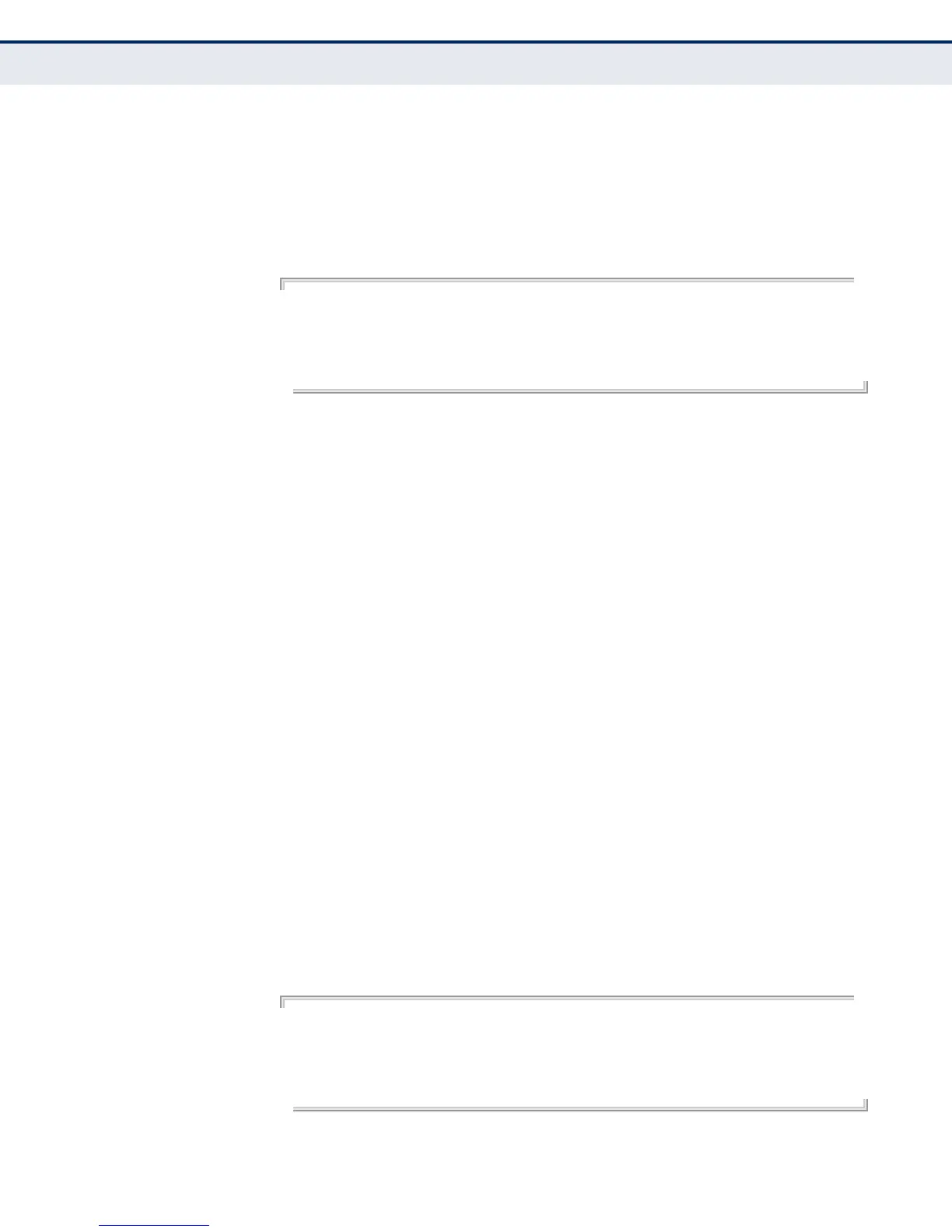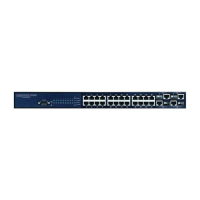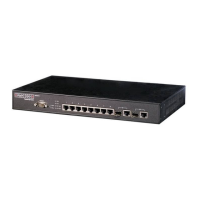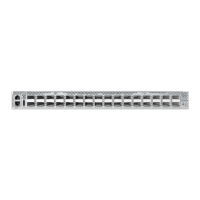C
HAPTER
38
| Quality of Service Commands
– 1197 –
EXAMPLE
This example creates a policy called “rd-policy,” uses the class command to
specify the previously defined “rd-class,” uses the set cos command to
classify the service that incoming packets will receive, and then uses the
police flow command to limit the average bandwidth to 100,000 Kbps, the
burst rate to 4000 bytes, and configure the response to drop any violating
packets.
Console(config)#policy-map rd-policy
Console(config-pmap)#class rd-class
Console(config-pmap-c)#set cos 3
Console(config-pmap-c)#police flow 10000 4000 conform-action transmit
violate-action drop
Console(config-pmap-c)#
set ip dscp This command modifies the IP DSCP value in a matching packet (as
specified by the match command). Use the no form to remove this traffic
classification.
SYNTAX
[no] set ip dscp new-dscp
new-dscp - New Differentiated Service Code Point (DSCP) value.
(Range: 0-63)
DEFAULT SETTING
None
COMMAND MODE
Policy Map Class Configuration
COMMAND USAGE
The set ip dscp command is used to set the priority values in the packet’s
ToS field for matching packets.
EXAMPLE
This example creates a policy called “rd-policy,” uses the class command to
specify the previously defined “rd-class,” uses the set ip dscp command to
classify the service that incoming packets will receive, and then uses the
police flow command to limit the average bandwidth to 100,000 Kbps, the
burst rate to 4000 bytes, and configure the response to drop any violating
packets.
Console(config)#policy-map rd-policy
Console(config-pmap)#class rd-class
Console(config-pmap-c)#set ip dscp 3
Console(config-pmap-c)#police flow 10000 4000 conform-action transmit
violate-action drop
Console(config-pmap-c)#
